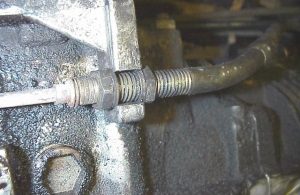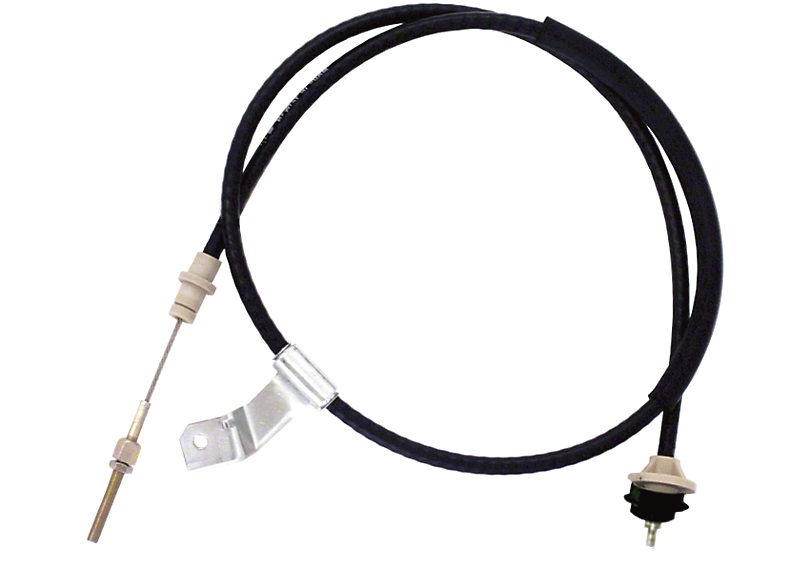What does the clutch cable do?

The clutch cable connects the clutch to the other components in your manual transmission (gearbox), allowing for smooth changing of gears.
When the clutch pedal is pressed, the cable is used to interrupt the transmission, allowing you to change into the right gear. It does this by pulling on the clutch lever, which presses the clutch trust bearing against the clutch pressure plate, which then disengages your clutch from your engines flywheel.
What causes problems with the clutch cable?
The clutch cable is constantly under a lot of pressure. This means that eventually, it will wear and break. Taking care of your clutch will increase the life of the clutch cable and surrounding components. For example as you use your vehicle, your clutch lining wear off over time, meaning that your clutch cable can become over tight, and be slightly disengaging your clutch all the time.
This can lead to slipping of your clutch and rapid wear out or destruction of your clutch, trust bearing, pressure plate, and engine flywheel.
If you clutch cable has stretched over time, you may only partially disengage your clutch when pressing he clutch pedal down.
In most cases, your vehicle may still be driveable with a damaged or poorly adjusted clutch cable. If you can still partially disengage your clutch, however you may struggle to change gears. Prolonged driving with a damage or miss adjusted clutch cable may also cause serious damage to other parts of your transmission system, such as your gear synchronization rings (synco rings) and gearbox bearings, and even engine mounts.
What are the symptoms of a damaged clutch cable
Clutch pedal sinks to the floor – If the clutch cable snaps or becomes unattached from the gearbox, the clutch pedal will sink all the way to the floor when applied. This will prevent you from putting the vehicle into first gear or reverse and changing gears.
Resistance in clutch pedal – If your clutch cable becomes out of its correct adjustment, is damaged or partially seized, it may require a lot more force to engage your vehicle’s clutch pedal. It is likely your clutch will fail quickly in this situation.
Clutch Slipping – If your clutch cable is too tight, your clutch may slip while you are driving. This will happen most often when you are accelerating.
Clutch Burning smell – if your clutch starts to slip constantly, you will often get a burning smell as the clutch linings are forced to spin under some pressure between the clutch pressure plate and the engine flywheel.
Engine revs up, but car doesn’t accelerate properly – if you clutch cable it to tight you may find that as you drive the engine revs up, but the car does not accelerate at the correct speed due to the clutch slipping internally in the manual transmission.
Clutch Cable Adjustment & Replacement in Hamilton
Is your vehicle’s clutch cable in need of adjustment or replacement? If so, we can help you!
At Grimmer Motors, our reputable, qualified, and experienced mechanics can provide reliable servicing for your clutch and manual transmission (gearbox). This will allow your vehicle’s manual transmission to operate smoothly. For clutch services in Hamilton, contact Grimmer Motors today.

